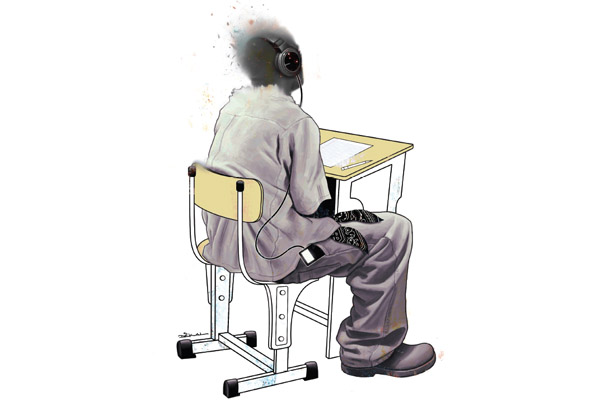On Hip-Hop Pedagogy
I feel that all the hip-hop albums I have ever listened to, from Snoop Dogg’s Doggystyle to Kendrick’s To Pimp a Butterfly have taught me more valuable life lessons and offered more insight into my world than any public school educational resource I was ever handed. School taught me how to read, write and do math. The questions and challenges I was required to complete taught me how to problem solve to a certain extent. History and Geography textbooks allowed me to understand my situational context. Through these resources, I learned that the world was bigger than my block, bigger than the east end of the six, and bigger than North America. Art and French class flaunted me with the realization that I could not excel in all things. Or rather, they made me appreciate the talent that came to others naturally. But music, man o’ man, music taught me life. Even at school, the hallways and everything while transitioning from one “class” to another was in itself a classroom. It was classroom hip-hop. There were mistakes that I didn’t dare make thanks to listening to Ready to Die or watching videos like TLC’s Waterfalls. English class taught me how to write properly but I would argue that hip-hop music taught me how to articulate meaning. So why do we not learn from this valuable resource in school? Why are our poetry units crowded with dead white men? Learning is more than a regurgitation of information. And schools should start to adopt a form of knowledge production that brings information to life.
For the life of me, I could not care to remember mundane facts, no matter how many times I read over the reasons or causes for some historical event. But in high school, ask me the latest Nas track or R.Kelly ballad and I could recite it word for word! The fault in our education lies somewhere along the traditional pedagogical practices we still try to shove down our children’s throats. Most of our conventional methods of teaching are slowly dying. Many are dead. They especially find themselves numb to a group of bodies that have the ability to, and would much rather, learn in creative and spirited ways.
Do I want to go as far as saying an urban hip-hop way of knowing runs contradictory to traditional schooling methods? No, I don’t think I do. The negative insinuations of such a statement could easily be used by any intellectual positivist to further espouse some incorrect nihilistic association regarding the Black urban culture. But I will say that if we add a little vibration and energy to our teaching practices, the sky is the limit for all learners. No one can argue that hip-hop is the fastest growing music form of our generation. Everyone knows Jay-Z, Kanye West, and now Drake. Thanks to the likes of Blondie, Rick Rubin and Mick Jagger, Black music has slowly and steadily inched its way into mainstream pop culture and has subsequently blown the hinges right off that door. And yes, I say thanks to the likes of those people (know your music history). For a long time, it took the co-sign of prominent white musicians in order for Black music to earn its place in the mainstream that it properly deserved. Now that we’re here, on the very fringe of appropriation, what do we do with this tool? What do we do with a tool not made by the master now that we are in the master’s house?
That question is rhetorical. At least for me it is. I am not shaky in my stance. I am prepared to put my head on the line for a just cause. A right cause. A role model (and hopefully a future mentor), Chris Emdin, professor at Columbia University has sparked a movement in Hip Hop Education, tagging the line, “on with the revolution.” If we move correctly and can straddle the Ivory Tower and the bricks appropriately with enough soldiers, we will indelibly be on with this revolution in education.
The only thing stopping us is ourselves. We must demonstrate conviction in believing that Hip Hop is one of the greatest forms of self-reflection, soul searching, communication, and learning. I am here to testify that hip-hop has taught me more than any book I read in high school. Rappers, and not any standard lesson, have shown me how to convince, charm, and articulate. I pulled my pants up and took my hat off when they told me to. This was out of respect. But did their words change me?No. I changed on my own, through mentors and models that opened a door, or rather a bridge that I could walk across, understanding that both the conventional world and the urban world could be one in the same. If more of us teachers start to realize this, pedagogy can be put into practice. That information we are supposed to remember for History or Science class will be as easy as remembering the lines to Juicy. So, on with it.
[share title=”Share this Post” facebook=”true” twitter=”true” google_plus=”true”]

